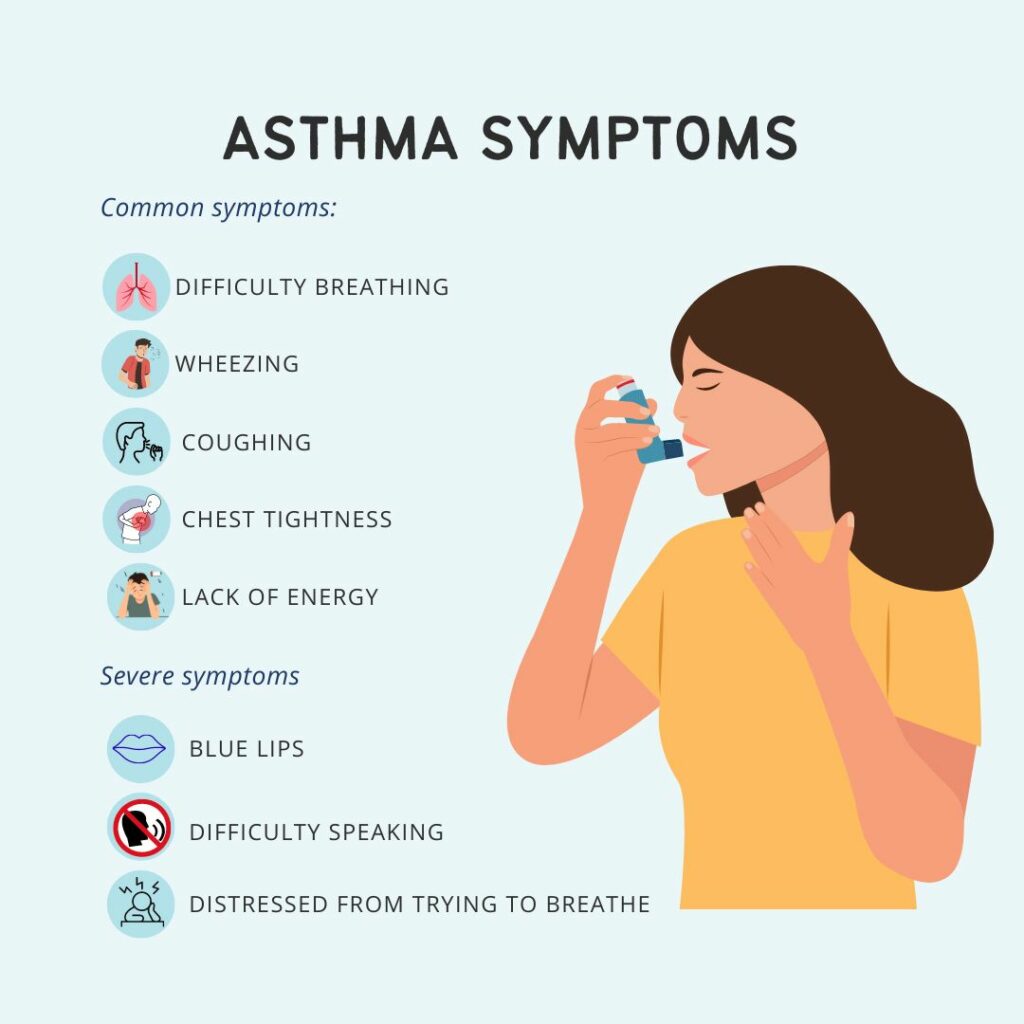What is Asthma?
It is a condition that affects the airways in the lungs, making it harder to breathe. People with asthma may have sensitive airways that become inflamed when exposed to triggers, leading to wheezing, coughing, or shortness of breath. The symptoms are often worse at night.
The symptoms can intensify, leading to an asthma attack. These attacks can occur suddenly, triggered by factors or another health condition. It is important to understand that immediate medical attention or a visit to the emergency department could be needed if symptoms are serious.
It is a common condition that affects 1 in 9 adults and 1 in 5 children in Australia. There is no common age to develop asthma, although it can occur at any stage in life. It can be a life-threatening condition that leads to the deaths of almost 400 Australians each year, but individuals can manage their asthma with proper medication and a written asthma action plan.
Causes:
Individuals are more likely to develop it if an immediate family member has the condition, eczema, hay fever, or allergies. Children are at a higher risk if they were born premature or with a low birth weight, if the mother smoked during pregnancy, if they lived in a home with a smoker, or if they have been exposed to air pollution/mold.
Common Asthma Triggers:
– Allergens such as pollen, dust mites, food and mold
– Smoke from cigarettes and bushfires and pollution
– Exercise induced asthma
– Infection from virus e.g. cold
– Irritants such as cleaning products, chemicals
What are symptoms of asthma?

Diagnosis and Treatment
It is important to get asthma diagnosed as soon as possible to help manage, understand, and prevent symptoms of wheezing, tightness, and breathlessness. A doctor will examine the history of when, where, and what makes the symptoms worse, and how often and how serious the symptoms are. A diagnosis is likely if the symptoms are frequent, worse at night or early morning, easily triggered by physical activity, allergies, and infections.
The doctor can conduct particular testing to see if it’s asthma-related. A lung function test can be done through spirometry or a peak flow meter. The tests assess the speed at which the lungs inhale and exhale air. While other tests could include an allergy test and a trial of medication to see which one is effective.
To treat asthma, it is important to keep the lungs healthy, prevent any symptoms from interfering with normal life, and prevent flare-ups or attacks. The medicines can be taken in a tablet form or as an inhaler. The inhalers should be used with a spacer and are in two categories as relievers and preventers.
The reliever medicine helps open the airways to relieve the symptoms during an attack. They can work within minutes, and the effects of which can last for hours. A preventer helps prevent an attack and keep it under control. They usually contain corticosteroids for an anti-inflammatory property and a long-acting reliever.
Action plan
For individuals who have the condition, the doctor will put together an action plan. This will include a list of usual medicines, how to recognise symptoms of an attack, advice on what to do in an emergency, and the doctor’s contact details.
Individuals who may think they have asthma should seek a doctor for a discussion.
Resources: